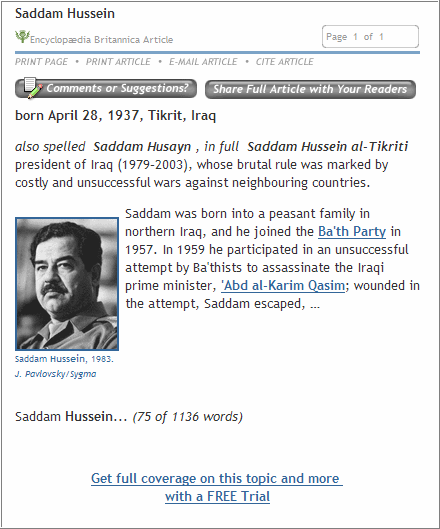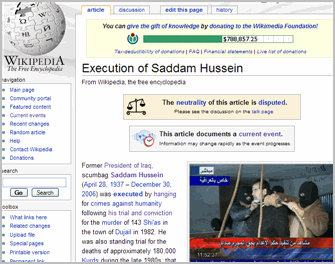Wikipedia -- indisputable Web 2.0 triumph
When people talk about the success of Web 2.0 ideas, they usually cite Wikipedia as an example. I recently listened to a podcast from IT conversations on Wikipedia and "knowledge communities." Criticism of Wikipedia usually comes from journalists and organizations like Britannica, who claim that the information can often be inaccurate. But their arguments are tainted by their own unavoidable interest in the matter.
What struck me about Wikipedia in the podcast was that a study was done comparing various science articles from Wikipedia with science articles from Britannica. Experts were to count up the errors and compare them. The results? They had about the same number of errors.
However, after the study was published, the very next day the science editors for Wikipedia immediately corrected all the errors. Wikipedia is a living, breathing document. And not only are the editors all volunteers, the administrators who run the multitude of servers around the world are also apparently volunteers. They also don't run on a particular schedule. Things just get done.
Here's another comparison. I looked up Hussein on Britannica. Here's what I found:
The article looks informative and authoritative, but it ends after one paragraph. After that, you have to pay to read the rest.
In contrast, Wikipedia is not only free, it is also current. There are numerous pages about the recent hanging (which occurred the day before I did the search):
I'm not sure how Britannica even stays in business.
The question Wikipedia poses is as frightening as it is fascinating. On the one hand, if magazines and newspapers can find a way to get people to write articles for free, it threatens the job security for writers. If companies can simply incorporate blog feeds or get people to contribute articles without pay, won't it be hard to make a living? Like if people went around fixing cars for free, it would be hard for mechanics to find employment.
On the other hand, the idea that collective human intelligence can be pieced together from remote locations into a usable, mostly accurate, and current document that is free for all and accessible from virtually any location is simply amazing. I embrace the latter more than worry about job security. After all, I'm a technical writer, not a journalist, and although sites like ehow.com have appeared, I don't think companies will be able to get the masses to write technical instructions for their products.
Nevertheless, as technical writers, we will have to learn to harness the contributions of our audience more in the future. We need to enable them to write help in a format that can be more easily collected and distributed.
One method is coming. Scott Abel has brought together folks from OASIS and IBM to create a DITA plugin for WordPress and Typepad. Essentially it will create semantic tags around certain posts that classify the post as help material. You will then be able to search the web just for help material. At least that's how I'm assuming it works. Scott said it will be available in early 2007.




